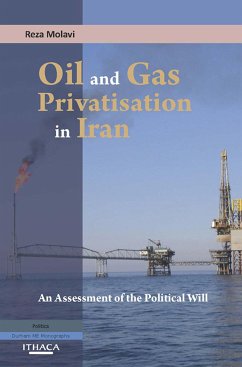Iran is the fourth biggest producer of oil in the world, and its coastline stretches the entire length of the Persian Gulf, one of the world's most strategic waterways in terms of energy security. The establishment of the Islamic Republic after the 1979 Revolution paved the way for religious clerics to gain ultimate political control in Iran. The only area in which differences of opinion were tolerated was the role of the private and public sectors. In this book, Reza Molavi explores the potential for the privatisation of some of Iran's national institutions, in particular whether there is the political will to privatise the Iranian oil and gas industry. He begins by providing a theoretical basis for the determination of privatisation policy. Subsequently, he explores a set of international precedents and then presents an historical overview of Iran since World War II in order to build a context for the determinants of privatisation policy in Iran. Finally, the specific background, legal and institutional framework, and policy-maker perspectives are incorporated into the overall analysis. Together, these three approaches provide a cumulative understanding of the determinants of privatisation policy in Iran.
Dieser Download kann aus rechtlichen Gründen nur mit Rechnungsadresse in A, B, BG, CY, CZ, D, DK, EW, E, FIN, F, GR, H, IRL, I, LT, L, LR, M, NL, PL, P, R, S, SLO, SK ausgeliefert werden.









